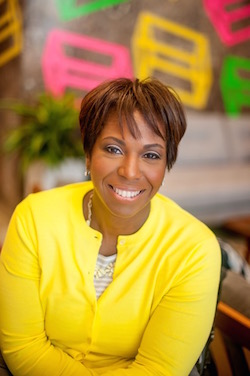Dear Friends and Colleagues,
The world has changed in many ways since my last note to you. COVID-19 has impacted how we socialize, work, and go about our daily lives. Students (K-College) are home completing their work through digital learning, families are eating at home a lot more, and hopefully we’re taking gentle care of ourselves.
Bishop T.D. Jakes recently said the virus’ impact is felt by all and cuts across all dimensions of diversity. Additionally, COVID-19 doesn’t care about your age, income, education or political affiliation. For the first time since 9/11, it feels that the common denominator across the globe is our ability to demonstrate empathy and kindness towards each other.
While I’ve been focused on serving my clients and keeping connected to my team, I’ve also thought a lot about the global impact on people with disabilities and chronic health conditions, and their families/caregivers. And, I have questions, for which I don’t have a lot of answers:
- What are family members who have to work doing with medically fragile loved ones, if they have to work?
- Are employees with disabilities, at small and large organizations, feeling professionally vulnerable?
- Who’s ensuring that older people, who rely on food or meals from food banks or Area Agencies on Aging, getting their food?
- In areas where there are strict quarantines in place, how are people getting their medication?
If you have a team member with a disability, I encourage you to touch base with them to see if there’s anything you can do to ensure they remain connected with the necessary accommodations so they’re an active and productive employee. And, as a leader, can you safely support your colleagues with disabilities by running an errand or bringing a meal to them? Many people with disabilities won’t ask for assistance, even if it’s needed, so just touch base with all your team members to see if there are creative ways you can support one another.
The SMG team pulled together a few resources to help provide clarity for how the disability community can manage during this time of uncertainty. They don’t provide all the answers, but it’s my hope they are a resource and provide clarity:
- COVID-19 Information from the National Association of the Deaf
- COVID-19 Information in Different Languages
- COVID -19 Guidance for People who are High Risk
- Information and Resources, published by the National Council on Independent Living
- Pandemic Preparedness and In the Workplace and the Americans with Disabilities Act, published by the Equal Employment Opportunity Commission
- COVID-19 and OCD: Advice and Coping Strategies
- COVID-19 Sanitation Best Practices for Blind/Visually Impaired
- Special Education Distance Learning Resources for Parents and Teachers
- Mental Health Coping Resources from NAMI
- Meditation and Mindfulness Techniques from Calm
- COVID-19 (Novel Coronavirus) Plan and Preparation Guide for Adults Living with Neuromuscular Disabilities from NMD United
We also loved this story of advocacy:
- Coronavirus: How These Disabled Activists Are Taking Matters Into Their Own (Sanitized) Hands, published on 3/17 – KQED.com
Lastly, if you’d like to learn more about disability civil rights, it’s an exciting time. My friend Judy Heumann recently released her book: Being Heumann: An Unrepentant Memoir of a Disability Rights Activist, which can be purchased on Amazon.
And, on March 25th, the Netflix original film, Crip Camp, from Executive Producers President Barack Obama and Michelle Obama, will be released. This film chronicles the evolution of disability rights in our country. I can’t wait to see it and I hope you’ll consider watching as well. The official trailer with audio description can be found here:
- https://www.youtube.com/watch?v=s6TB7KEqhRo
- without audio description: https://www.youtube.com/watch?v=XRrIs22plz0
I have no idea how we will forever be changed, but I know we will rise up from the pandemic. Be kind to each other and gentle with yourself.
Wishing you and yours the very best,
Carmen
Carmen Daniels Jones
 According to the U.S. Census, there are 56 million people with disabilities (PWD) in the country. While this market intersects all races and ethnicities, on its own, it is larger than the African-American (42M), and Hispanic (35M) segments. Targeting this market can be challenging since disabilities are diverse, individuals don’t always disclose they have one, and there’s no residential segregation or concentrated areas in cities and towns where people with disabilities reside.
According to the U.S. Census, there are 56 million people with disabilities (PWD) in the country. While this market intersects all races and ethnicities, on its own, it is larger than the African-American (42M), and Hispanic (35M) segments. Targeting this market can be challenging since disabilities are diverse, individuals don’t always disclose they have one, and there’s no residential segregation or concentrated areas in cities and towns where people with disabilities reside.